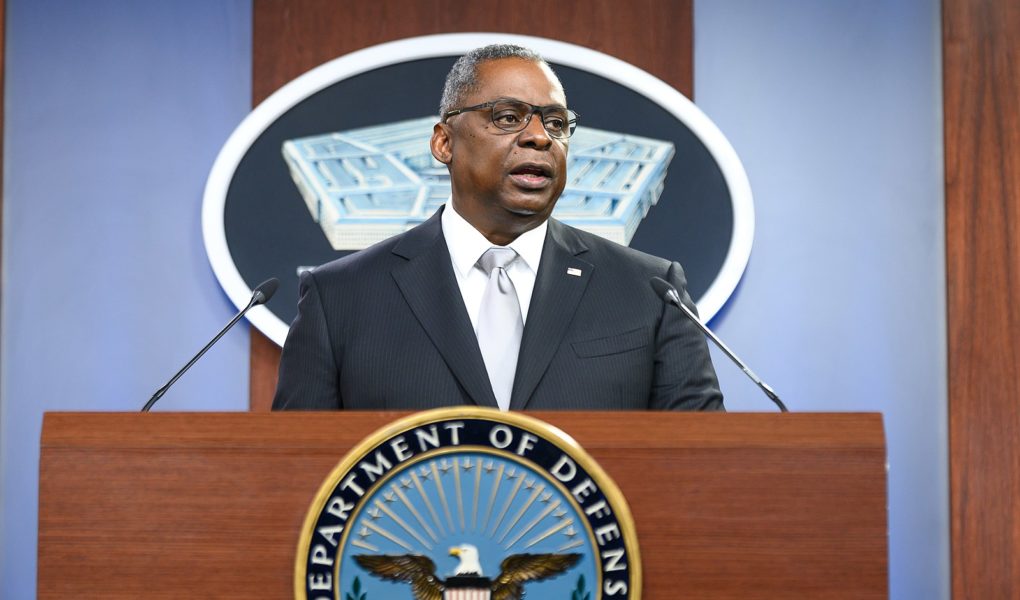Israel Tells US Defense Chief During Visit: We Will Work Together on New Iran Deal
By Sharon Wrobel
Secretary of Defense Lloyd J. Austin III briefs the press from the Pentagon Briefing Room, Washington, D.C., Feb. 19, 2021. (DoD Photo by U.S. Air Force Staff Sgt. Jack Sanders). https://flickr.com/photos/68842444@N03/50960365597
“The Tehran of today poses a strategic threat to the international community, the Middle East and Israel,” Gantz said. “We will work together with our American allies to make sure that any new Iranian nuclear agreement secures the vital security interests of the world and the US, prevents a dangerous arms race in our region, and protects the State of Israel.”
Commenting on the Austin visit, John Hannah — a senior fellow at the Jewish Institute for National Security of America (JINSA) — said that the trip is an appropriate step to reassure that Israel is America’s most capable partner, despite regional differences and significant challenges faced by the US.
“Now is even more important for the US to strengthen its ties with Israel as a leverage in the indirect tough talks with Iran,” Hannah, who served as chief foreign policy adviser to former Vice President Dick Cheney, told The Algemeiner. “Part of the challenge for the Biden administration is to convince Israel that full compliance with the 2015 Iran nuclear deal is only the first step to follow-on diplomacy for a larger and stronger deal.”
Iran has steadily violated restrictions imposed by the 2015 deal on its nuclear activities, in response to Trump’s withdrawal from the accord. In talks that began last week in Vienna, during which European Union country officials are serving as intermediaries between Iran and the US, the parties seek to restore restrictions on Iran’s nuclear operations in exchange for the lifting of sanctions.
“Everybody in the US administration has been saying that it is not 2015 anymore, we are going to go for a new nuclear deal that’s longer and stronger. The problem is that these are the same people who negotiated the deal in 2015 and had told the world there is no chance that the Iranians will agree to a longer deal. It is either this deal or war,” Hannah said. “There is great fear now that they are telling critics of the deal what they want to hear but once they are back in the old deal they are going to put the Iranian nuclear file on the back burner and there will be no pressure on Iran to agree to follow-on diplomacy for a longer and stronger deal.”
“There is a legitimate worry that billions of dollars of relief from lifting sanctions in exchange for a fatally flawed 2015 nuclear deal that essentially even if Iran abides by the deal actually paves the way for a nuclear weapon state,” Hannah added. “The potential pitfall of going back to the original deal is regionally, as Israel might decide to take their own action, and domestically the Biden administration is likely to face a very tough political debate and fighting in Congress.”

